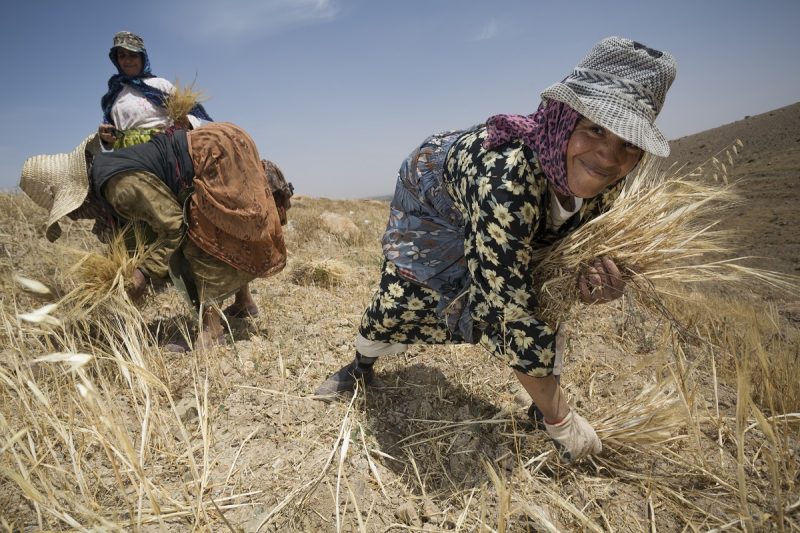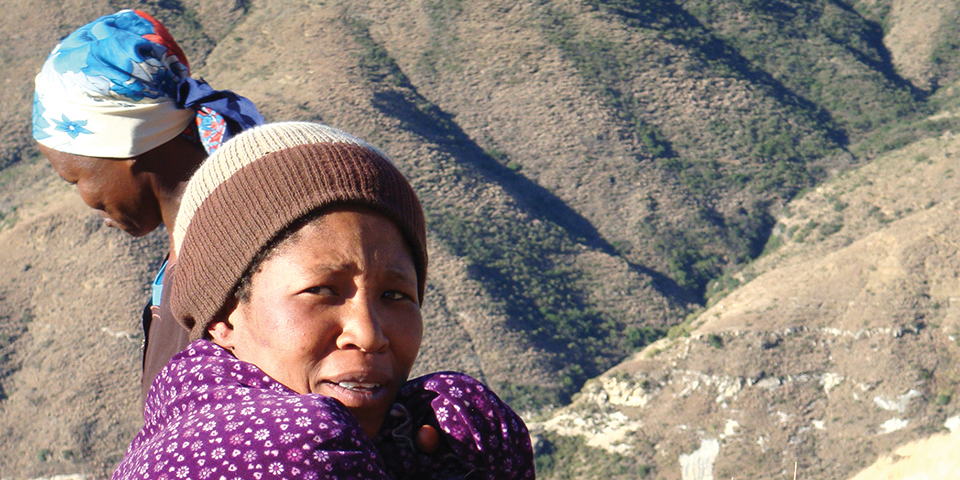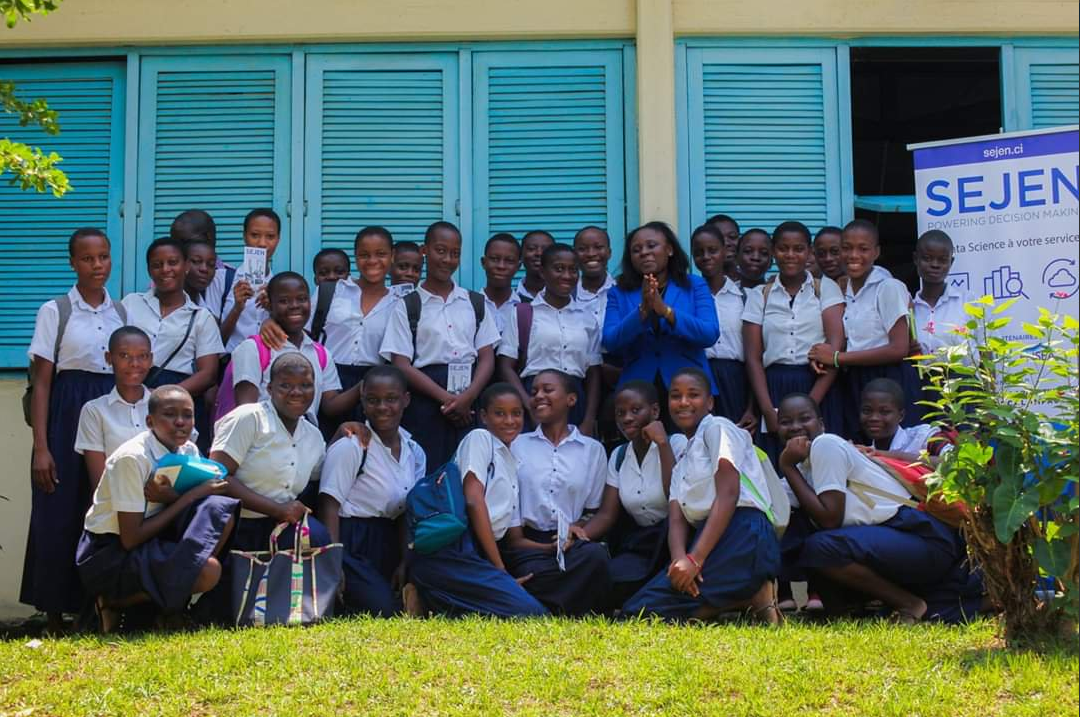Inclusion & Gender
Advancing inclusion, gender equity and equality is fundamental to MCC’s mission to reduce poverty through economic growth. Structural exclusion of disadvantaged groups is a problem in all countries. MCC recognizes that growth alone will not meet its poverty reduction mandate if its programs are not inclusive and sustainable. With the new Inclusion and Gender Strategy, MCC will strengthen its efforts to address exclusion in our programs.
Our Commitment to Inclusion and Gender Equality
Through the new Inclusion and Gender Strategy, MCC will significantly deepen its commitment to inclusion and gender equity and equality by routinely and systematically integrating inclusion and gender into program design. The goal is to increase the ability of poor people, women, and other disadvantaged groups to access, participate in and derive benefits from our investments.
The I&G Strategy has five distinct objectives:
Strengthen the integration of inclusion and gender considerations in MCC’s analytical tools.
Fully integrate inclusion and gender considerations into all stages of program development and implementation.
Support policy and institutional reforms to enhance the inclusion and gender impacts of MCC investments.
Catalyze private capital for investments that promote inclusion and gender to help achieve MCC project objectives.
Leverage partnerships to support MCC’s inclusion and gender objectives.
Strengthening Our Analytical Tools
The Inclusion and Gender Strategy builds upon a decade and a half of MCC’s work addressing gender inequality. Every country’s program must meet the minimum requirements of MCC’s Gender Policy, first adopted in 2006, which requires an analysis of gender differences and inequalities for every project and to address these in program design. MCC has also increasingly sought to address other forms of exclusion. Through the new Inclusion and Gender Strategy, MCC will broaden and deepen this work, undertaking it regularly and systematically across all its country programs.
The Strategy commits MCC to do more to integrate inclusion and gender considerations into our analytical tools, including the selection of constraints to growth and the understanding of how benefits from MCC’s investments accrue. MCC is adjusting its program development processes and designing a new tool to ensure that inclusion and gender can be comprehensively considered at critical program development milestones.
Some of our more recent country programs, such as those in Senegal, and Lesotho, have already advanced aspects of the new strategy’s inclusion objectives, demonstrating what’s possible, and paving the way for undertaking these approaches across our portfolio.
-
Promoting social inclusion and gender is at the core of MCC's mission to reduce global poverty and promote economic growth. The Inclusion and Gender Strategy builds upon a decade and a half of work, particularly in the area of addressing gender inequality.
-
Through MCC’s Gender Policy, partner countries analyze gender differences and inequalities to inform the development, design, implementation, monitoring, and evaluation of programs.
Investments in Inclusion and Gender
The Strategy commits MCC to routinely and systematically integrate inclusion and gender considerations into all stages of program development and implementation. This includes developing tools to better assess up front the differential poverty impacts of projects under consideration so that informed program choices can be made. Teams can make design choices and changes, including integrating activities that would increase the ability of excluded groups to access, participate in, and benefit from MCC investments.
MCC’s current country programs, including the recently closed Ghana compact and the Kosovo threshold program also provide valuable lessons and insights that will inform programs under development.
Lesotho
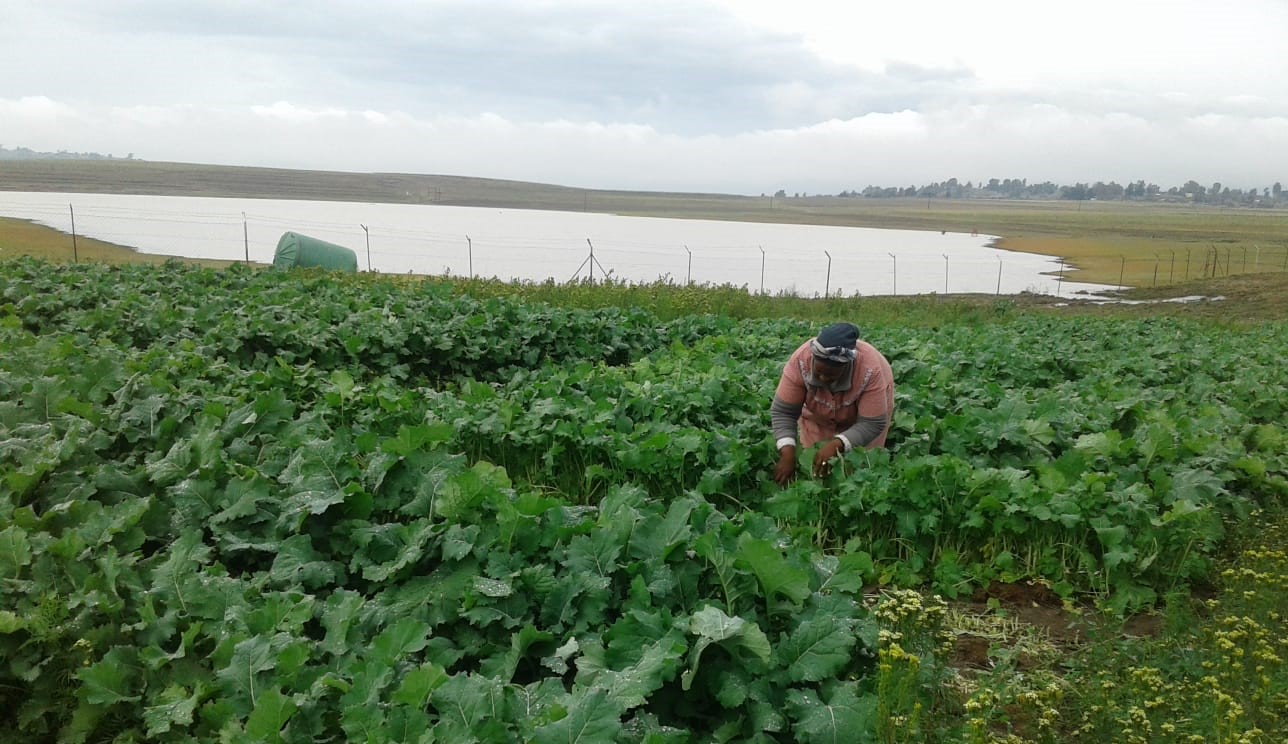
MCC
A woman-owned smallholder horticulture farm in the Mafeteng district of Lesotho.
Despite nearly four decades of robust per capita income growth in Lesotho, the national poverty rate stayed virtually unchanged, at 57.1 percent, from 2002 to 2010. Smallholder farmers largely practice subsistence agriculture, and small businesses in agriculture and other sectors have little access to finance or effective technical support. Rural women are at a sharper disadvantage, where customary laws subject them to highly insecure land rights. The Lesotho Health and Horticulture Compact advances legal reforms that will secure land rights for women, ensure inheritance rights for daughters, strengthen labor rights for agricultural workers, and codify protections against domestic violence. The compact’s Market Driven Irrigated Horticulture project will focus on subsistence farmers, women and youth as the key target groups, supporting their livelihoods through commercial irrigated horticulture. It will use gender-transformative methodologies across all land registration, farmer training and support activities, and address childcare needs and gender-based violence. The Business Environment and Technical Assistance project will provide technical support and finance for micro, small and medium enterprises, with several programs designed for women and youth, including working with banks to provide gender-responsive financial products and support for women’s savings groups.
Senegal
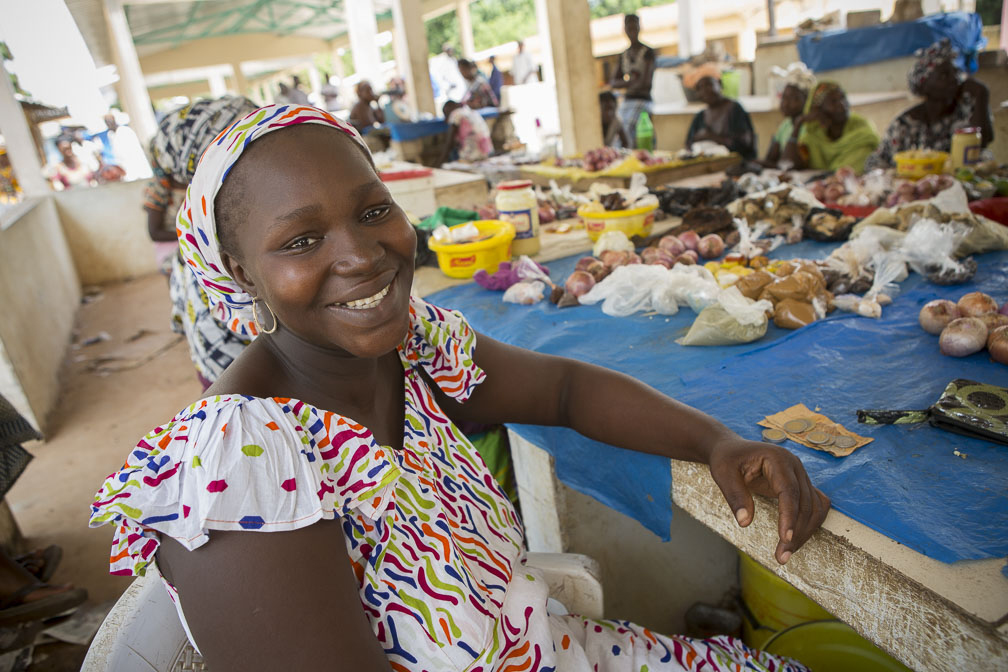
The Senegal Power Compact Access Project supports the construction of electrical grid infrastructure in the southern and central regions of Senegal, which have previously been politically excluded and have high rates of unemployed youth. It also integrates social inclusion and gender objectives in major project activities. For example, the Access Project directly focuses on women and youth as target populations, bringing electricity to 12,700 households in approximately 300 communities. The Project will boost economic growth by helping women, youth, and lower-income households use electrical equipment more productively. Specifically, the Project will address the barriers women and youth face when purchasing electric equipment, with a focus on promoting equipment to generate income or save time. Under the Reform Project Senegal’s Ministry of Energy and Petroleum adopted the Economic Community of West African States (ECOWAS) National Action Plan for Gender in the Energy Sector. The compact will fund priority activities identified in the plan, including an internship program to increase women’s employment opportunities across the energy sector. To better understand the differentiated needs of men and women in decision-making, a programmatic audit of the electricity utility’s activity is envisioned under this project. The Reform Project will support the energy regulator in improving communications with different populations, ensuring they are aware of tariff changes and how those changes are made.
Morocco
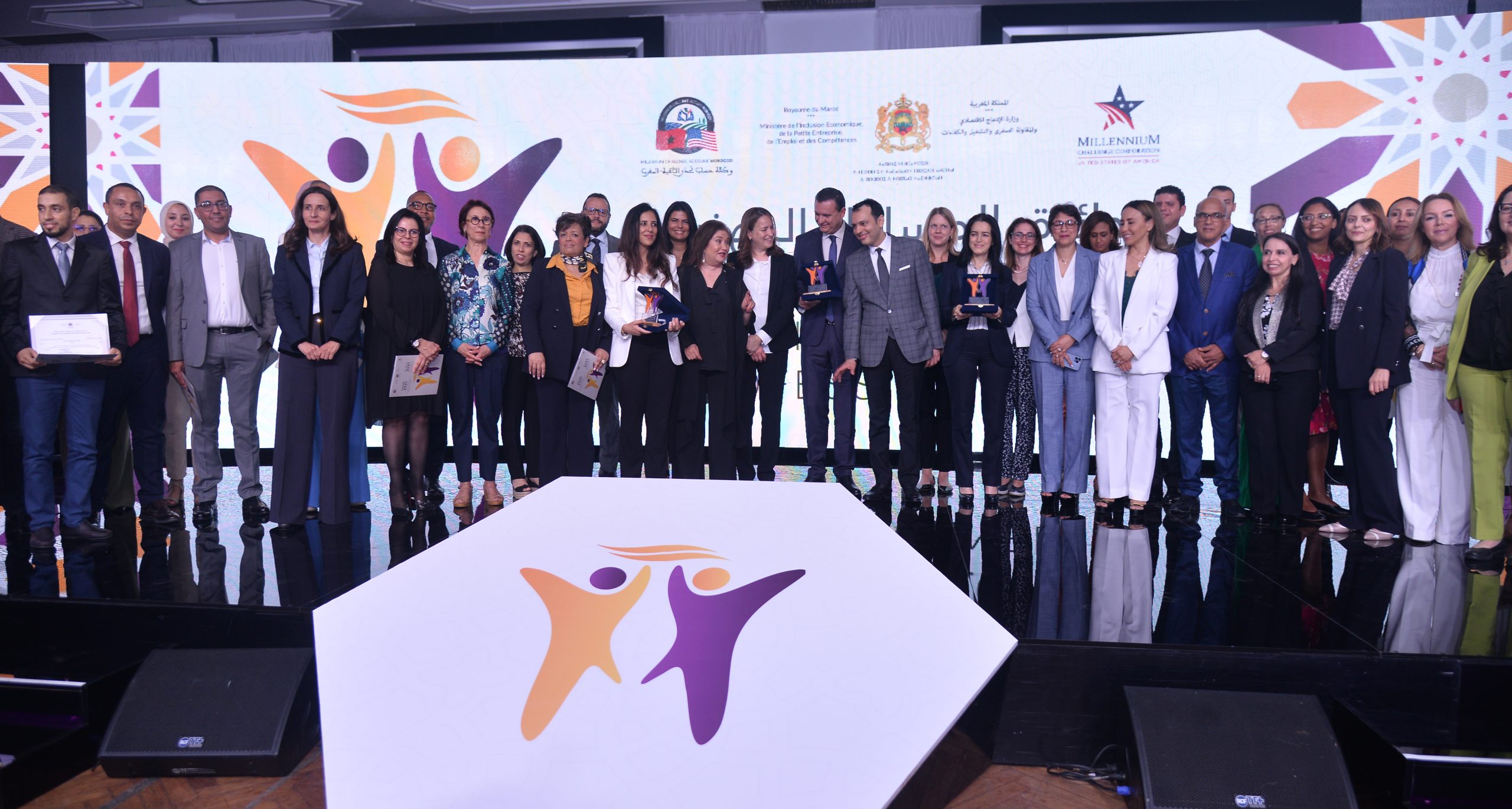
The winners of the sixth edition of the Professional Equality Trophy, supported by the MCC – Morocco Land and Employability Compact.
The Morocco Land and Employability Compact has prioritized the integration of gender equity and social inclusion objectives, including advancing women’s land rights, participation in land governance and female and youth employability and economic empowerment. For example, in the Secondary Education Activity, teachers from 90 schools participated in a five-day training on gender and social inclusion to strengthen teachers’ skills in how to avoid stereotypes, increase awareness of the barriers faced by girls and students from marginalized communities, and encourage class participation from girls and boys from all backgrounds. In the Technical and Vocational Education (TVET) activity, the 15 technical and vocational education institutions supported by the Charaka grant fund adopted operational plans for gender and social inclusion that detail the promotion of gender equity in the governance and management of their centers and outreach to women. MCC has prioritized the physical accessibility of the buildings to ensure that youth with reduced mobility can access classrooms, dormitories, bathrooms, and dining spaces. In the compact’s Rural Land and Land Governance Activities, MCC is cooperating with the Government of Morocco to implement recent legal changes that allow women heirs to inherit land and acquire land titles through the privatization of certain collective lands. Specifically, MCC is supporting a pilot approach to land titling – “melkisation” – that emphasizes informing communities about women’s land rights and engaging women in activities, including literacy classes, to strengthen their ability to manage their land productively.
Ghana
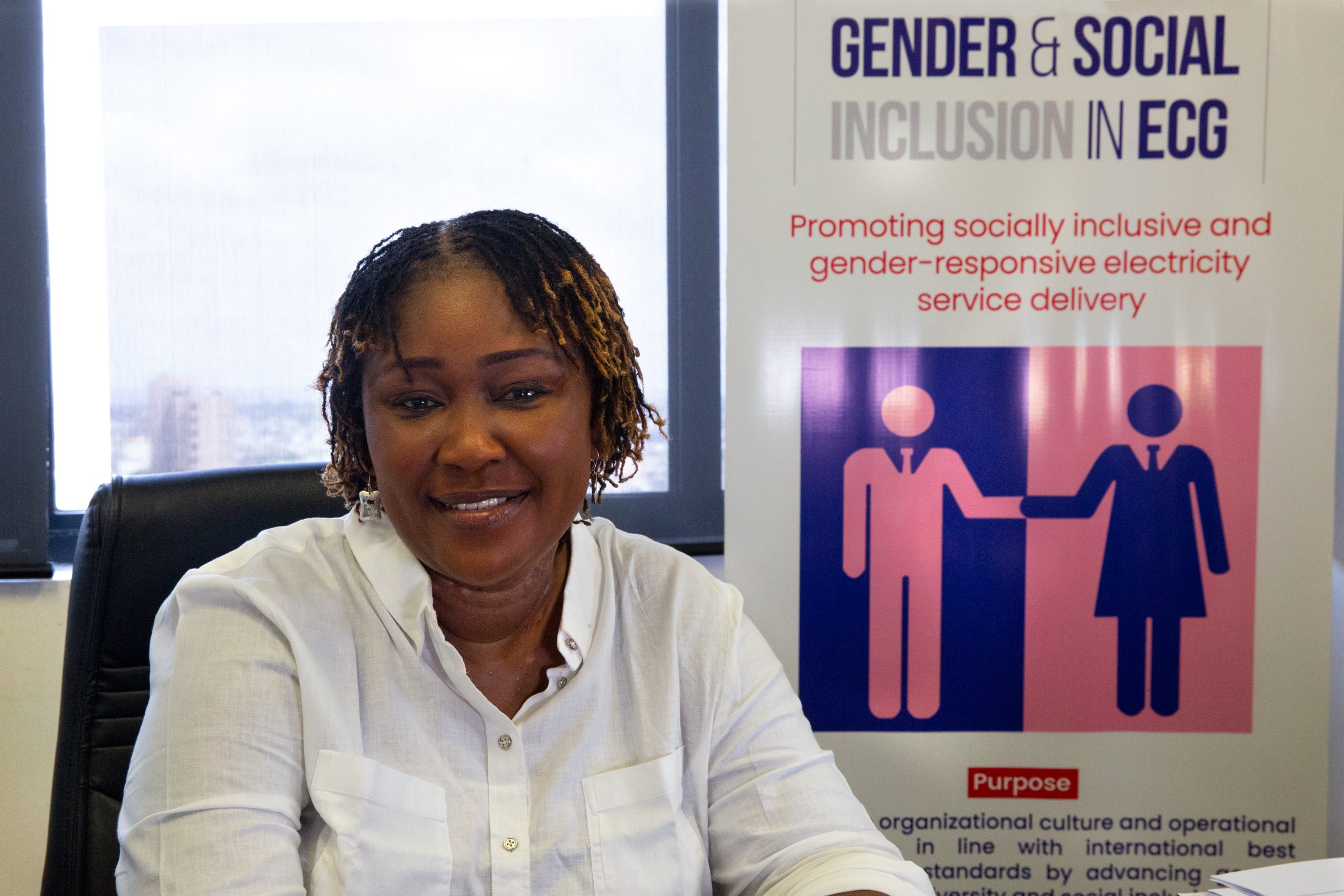
The The Ghana Power Compact worked with the Electricity Company of Ghana (ECG) to adopt a gender and social inclusion policy and action plan that included targets for increased recruitment of female staff as well as addressing promotion and retention, including the creation of a respectful, safe workspace.
“Gender is not about women only. It is about the rules that society has carried out for us and those rules are excluding people from certain positions. What we hope to achieve is to give a level playing ground for both males and females. For them to reach their potential — especially (against) barriers against female engineers.”
—Rosemond Asamoa-Frimpong
Gender and Social Inclusion Manager,
Electricity Company of Ghana (ECG)
MCC also supported internships for women students in STEM fields to gain practical work experience to help them increase their employability in the power sector. A total of 600 women were selected as interns and linked to female role models at prominent organizations such as Women in Engineering (WinE) of the Ghana Institution of Engineers; Women in Science, Technology, Engineering and Mathematics (WiSTEM); and the Ghana Academy of Arts and Sciences.
MCC also supported internships for women students in STEM fields to gain practical work experience to help them increase their employability in the power sector. A total of 600 women were selected as interns and linked to female role models at prominent organizations such as Women in Engineering (WinE) of the Ghana Institution of Engineers; Women in Science, Technology, Engineering and Mathematics (WiSTEM); and the Ghana Academy of Arts and Sciences.
Kosovo
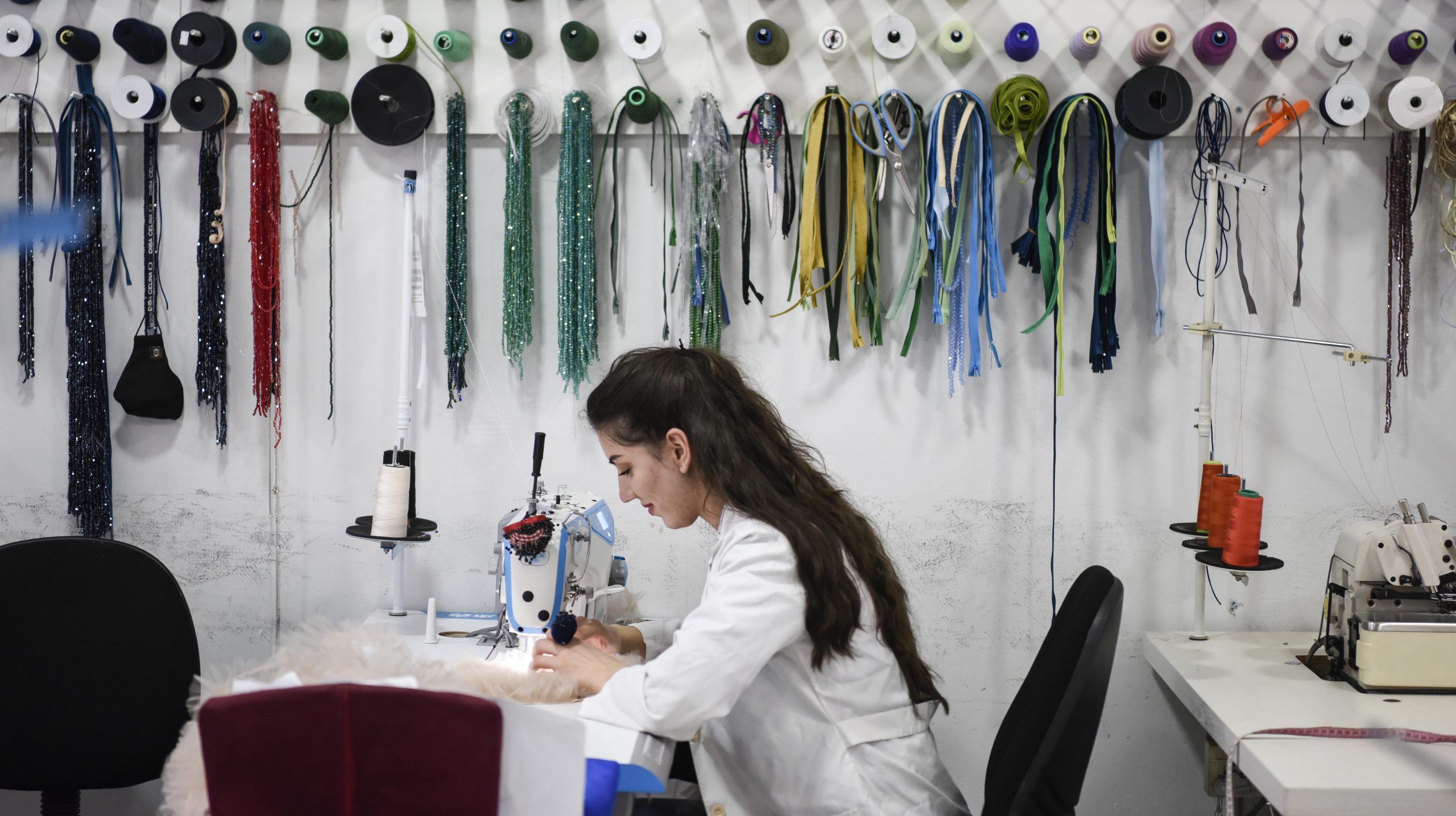
Photo: Rina Meta
A woman from the Kosovo Women in Energy scholarship program is learning practical skills in the tool and die class at Des Moines Area Community College (DMACC), in Iowa.
The Kosovo Threshold Program is changing perceptions about women working in traditionally male-dominated work sectors through its Women in Energy project which has focused on strengthening women’s employment and entrepreneurship opportunities in the energy sector. An internship program has given over 230 young women practical work experience and increased their employability. A scholarship program supported 28 women across Kosovo to obtain energy-relevant Associate Degrees in the United States. One hundred percent of graduates are employed post-graduation. A partial grant scheme enabled more than 400 women-owned businesses, ranging from microenterprises to large businesses, to invest in energy efficient equipment and appliances. The program also provided 20 women entrepreneurs with a six-month intensive coaching and mentoring program to improve their business performance, jointly with the University of Santa Clara Miller Center for Social Entrepreneurship. While the Kosovo Threshold Program is wrapping up in the fall of 2022, MCC is continuing its investment into a more inclusive future for Kosovo’s energy sector through a dedicated new Compact project that will directly build upon and expand Threshold investments to support women’s greater entry and success in energy sector employment.
Policy and Institutional Reform
MCC is working together with partner country governments to deliver legal, policy and institutional reforms that remove barriers to equal access to economic opportunities and are more responsive to the needs of poor people, women and other disadvantaged groups. Additionally, MCC catalyzes legal and other reforms through the country scorecard, which includes a Gender in the Economy indicator that measures the extent to which men and women have equal rights to engage in all aspects of the economy.
In Morocco, as part of the land project, MCC actively encouraged the passage of laws that govern the structure and administration of communal land and strengthened inheritance rights for women.
In Lesotho, MCC incentivized the passage of key reforms promoting women’s equality and economic security. These include reforms to customary law to remove married rural women’s status as minors and grant them full rights as adults—building on a landmark reform from the first Lesotho compact that changed this status for all women; inheritance reforms to give equal rights to daughters; a domestic violence bill; and extending labor protections to informal workers, including in agriculture where women are especially vulnerable to abuse.
Cote d’Ivoire recently revised parts of its family code, using the scorecard’s indicators as a roadmap for policy performance.


